Stephen Roney's Blog, page 240
May 15, 2020
A Journal of the Plague Year
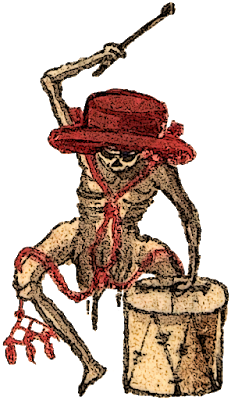
It has been looking bleaker week by week: no end to the lockdowns, talk that there might never be a vaccine. Talk that there may be no herd immunity either. Maybe one remains vulnerable to reinfection. We just keep getting it until we all die.
But in the last day or two, there has been good news.
To begin with, Sorrento Therapeutics of San Diego says they have a cure. That’s the word they use, “cure.” It is an antibody that, they say, blocks the coronavirus 100% of the time. Better than a vaccine. A vaccine is never 100%. And can risk causing rather than preventing infection. Since this is a naturally occurring antibody, it seems likely to be pretty safe. Trials must still be held, but that’s a pretty bright light suddenly appearing at the far end of this tunnel.
An online source that has been pessimistic reports a study comparing hydroxychloroquine with zinc and azithromyacin to hydroxychloroquine with azithromyacin alone. This is not exactly what we need to see, but it showed a significant effect, at least twice as high as has been claimed for remdesivir. With remdesivir, patients recovered in eleven days, compared to fifteen without treatment. With this zinc mixture, treated patients recovered in five or six days. Mortality rates were significantly lower; not so for remdesivir. It looks as though they are cut in half. This despite the fact that the mixture was only given to hospital inpatients, already experiencing severe symptoms. Previous studies suggest hydroxychloroquine is most effective if given at first symptoms.
Other studies are showing that Vitamin D deficiency is highly correlated with the severity of the illness: a serious deficit makes you eight times more likely to die. If we can all take Vitamin D if we are deficient, fewer may get the virus, and fewer get seriously ill from it.
John Campbell reports that the British figures show a mortality rate of only 0.05 percent there, without these factors yet being added.
Scott Adams reports a study that universal use of face masks would by itself reduce the transmission rate by 80%. And probably cause what infections happen to be less severe.
Imagine how much less troubling coronavirus would be if all of these steps were implemented. My math is probably wrong here, but back-of-the-envelope: Face masks reduce death rates to 0.00625. Vitamin D further reduces death rates to 0.00078125. Hydroxy/zinc/zpack pulls it down to 0.00039—less, because it would also have an effect in reducing spread. Then, when it comes onstream, the antibody treatment gets it down to zero.
Meantime, the rate of transmission or death does not seem so far to have jumped in Georgia, considered reckless for opening up a few weeks ago. It may simply be that summer has arrived, first in the southern states, and that will significantly reduce the rate of spread in itself.
Meantime, Scott Adams, who has a degree in economics and an MBA, thinks we will see no serious economic fallout from all the extra debt for pandemic bailouts.
If the economy can open again, with a cure seeming just around the corner, things may take off like a rocket.
'Od's Blog: Catholic and Clear Grit comments on the passing parade.
Published on May 15, 2020 11:14
Leacock
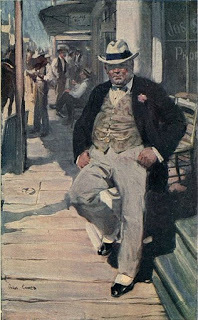 Mr. Smith in front of Smith's Hotel
Mr. Smith in front of Smith's HotelWhen I was a kid, I was crazy about Stephen Leacock. I borrowed and read every book they had by him at the Fraser-Hickson Library. They were in the adult section, so I had to smuggle them out using my mother’s library card.
I recently re-read some of his stuff. No, it was not as funny as I remembered. I found the beginning of his “My Discovery of England” still laugh-out-loud funny. Sunshine Sketches is still wonderful. But a lot of the rest seemed a swing and a miss.
When I was a kid, I also thought Wayne and Schuster were brilliant. But when I see their stuff on YouTube now, they’re mostly not good at all. Corny. Hammy.
The problem is that comedy relies on a reversal of expectations. It requires surprise. This makes it more easily and quickly dated than other forms. Everything that is really good is going to look corny in a few years, because you heard it before, and because, if it is really good, it has been imitated. And so there is no longer any reversal of expectations.
There have to be periodic revolutions in humour to overcome this. Leacock looks stiff and predictable post-Python.
A friend complains that Leacock uses too many American references; as though he’s pandering for the wider audience.
I don’t have any problems with Leacock’s American references, and I don’t think he was selling out. There is a lot of that in My Discovery of England, and he was not writing for an American audience, but a British one. The truth is, we ARE Americans, indistinguishable from other North Americans to Europeans or Asians or South Americans, barely distinguishable to Yanks. It is artificial to ignore the similarities and stress the differences. I like Neil Young’s attitude, in his album “Americana.” Which he ends with “God Save the Queen.” We are British North America. This is the cultural background we legitimately grew up with, mostly the same as the US, cowboys and Indians and the frontier and the gold rush, with a few more things on top.
One thing we share with our southern neighbours is a heritage of innumerable small towns. But here Leacock illustrates the vital difference. I’ve read the classic US small town novels: Lewis’s Main Street and Anderson’s Winesberg, Ohio. Very unlike Leacock’s Mariposa. The Mi-guk literary small town is a place of despair, a place you feel trapped and alienated, a dead end. The Canadian small town is remembered fondly, as real life as it ought to be lived; in Sunshine Sketches, in Munro’s short stories, in Anne’s Avonlea. The city is the place of exile.
Have you ever read Al Purdy’s “The Country North of Belleville”?
'Od's Blog: Catholic and Clear Grit comments on the passing parade.
Published on May 15, 2020 08:26
May 14, 2020
The Atheism Delusion

All my life, people have asked “Do you believe in God?” as though it were a meaningful question. I have never felt it was. It seems to me like a dodge to avoid the real question. It seems to me that, to any sincere and thoughtful person, the existence of God is self-evident.
My friends Xerxes or Xanthippe say they do not believe in God. But then they scoff at Him as “an old man with a long white beard living in the clouds.” Obviously, this is not God. Theirs is a perfect straw man argument.
Richard Dawkins argues that everyone is an atheist about all gods but one: Christians do not believe in Zeus or Baal. But by definition, there can be only one God, and it cannot matter what name you give Him, either Zeus or Jesus or Allah. So by Dawkins’ logic, to be a theist one must be an atheist; Aristotle would choke on his retsina. Nor do Christians deny the existence of Zeus or Baal, or any particular pagan god. They only deny that they are God; and the pagans who worshipped Zeus or Baal would agree. They are not God, by definition, because there are many pagan gods. None are claimed to be omnipotent, or omniscient, or all-good. They are simply supernatural beings. Dawkins is intentionally or unintentionally confusing apples and rutabagas.
Aha, you may object; but the pagans did not believe in God, did they? They believed only in gods; they were atheists in the proper sense.
I think they were atheists only in the modern sense: that they were trying to avoid the issue. We do not have sufficient evidence to say much about the original beliefs of hunter-gatherer societies, but when we look at ancient Rome, Greece, China, or India, we see that they did believe in an omnipotent, omniscient, all-good power. The Greeks called it Dike, “Justice.” Even the Gods could not avoid it. Plato and Aristotle were philosophical monotheists. In India, they called it karma, even apart from Brahman, possibly a later concept. In China, “tian,” “heaven.” They simply did not personify it and make it the sole focus of legitimate worship.
Another “atheist” argument is that there is no physical evidence of God. This seems perfectly disingenuous, since God is spirit and prior to matter, which He created; He is not physical by definition. You could just as plausibly argue that there is no physical evidence of consciousness. But just try running the statement “I am not conscious” by Descartes. Conversely, instead of arguing that there is no physical evidence of God, you could argue that everything physical is proof of God, in the same sense that hearing a nightingale’s song and seeing a nightingale’s plumage is evidence there is a nightingale in the woods.
It seems to me people are not arguing here in good faith. It is not that anyone really does not believe in the existence of God. It is more a case of whistling past the graveyard; we all want plausible deniability.
The real question is “Do you believe in evil?” Or you could phrase it as “do you believe in karma?” Or, “do you believe in justice?”
This is what everyone is really trying to avoid; avoid by not even asking the question. We do not want to believe in justice, in right and wrong, because and to the extent that we are aware ourselves of having done evil. We want to avoid admitting it.
We are in the position of Adam and Eve, who, hearing Yahweh approach, absurdly tried to hide in the bushes. Yeah, that ought to work, with an omniscient being.
Another reason why “do you believe in God” is the wrong question, is that it is perfectly common for people to profess to believe in God, yet deny the existence of evil or justice. They will readily say they believe in God; but will they speak of the Devil? This really means they do not accept God at all; they are just mouthing the word in hopes this will serve as cover. Like Adam and Eve with their fig leaves.
They will profess, for example, that the only thing that matters is to accept Jesus Christ as your personal savior. They will say salvation is by faith alone. If you simply say you believe in God, you need not worry about your actions. They will say God loves us all, there is no Hell, or nobody in Hell, and we will all get into Heaven. We are all saints. They will say the only sin is in pointing out a sin.
How common an attitude is that in the Christian world?
Almost the dominant attitude, surely.
As it is in the Muslim world, for that matter.
It seems from this that Hell indeed will not lack occupants. To sin is human; to deny God, to deny the possibility of sin, is diabolical.
'Od's Blog: Catholic and Clear Grit comments on the passing parade.
Published on May 14, 2020 05:09
May 13, 2020
Tea and Culture
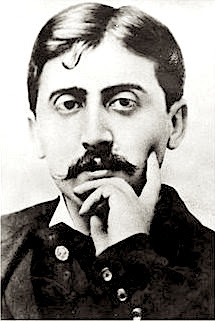 Proust
ProustTea is civilization.
Have you noticed? Wherever it goes, it is far more than a drink.
A, English friend notes that tea must be drunk with milk, never cream. The milk must be put in the cup first, then the tea.
I, on the other hand, drink my tea with evaporated milk. Comparing notes with my brother recently, he insisted on the same. It was how our grandparents always served it—our grandparents, who ran a dairy farm, for whom either fresh milk or cream was freely available.
My friend notes you must always “scald the pot.” We do that too, but we say “warm the pot.” An Irish friend uses the same term, and also insists it must be done.
Americans, on the other hand, if you order “tea,” will bring you something with ice and lemon in a tall glass. An American YouTuber visiting London is not sure what to do with a strainer.
I confess that it deeply troubles me when people speak of “brewing” instead of “steeping” tea. For me, hearing that “wrong” term is like wet chalk making a false move on a greenboard. It is simply barbaric.
George Orwell’s essay “A Nice Cup of Tea” is a classic. He spends some time on the eternal debate over whether the tea or milk should be poured first. So is Charles Lamb’s “Old China,” on proper teapots. There are all these important rituals around tea, and all must be just so.
They probably have nothing to do with the taste of the tea. Because other countries have entirely different rituals, and they are just as insistent on them.
In Canada, we insist on a rolling boil. In China, it is essential that the water not be too hot.
In Canada, we insist that tea must not be steeped for more than five minutes; otherwise it becomes bitter. In China, the tea is left in the pot, more water is poured on, and the second steep is considered better. In Russia, you steep it all day, until it is concentrated, then add more water.
In North India, the tea must be poured from a great height, to be properly aerated. In Morocco, it must be served sweet and green, with mint. In Tibet, it is served salted.
The thing is not the flavour of the tea; it is the pleasure of the ritual. Of doing it just so.
In Korea, tea does not involve tea. It is a selection of tisanes. Odd, that, eh? Tea in China, tea in
Japan, no tea in Korea.
Tea was actually illegal in Korea for several centuries. They had prohibition, just like alcohol in North America. Tea was socially dangerous. But they never thought to ban mere alcohol.
They were on to something. Anybody who’s paying attention should realize that stopping for a cup of tea has major psychological effects. It makes one want to create culture.
The Brits managed to addict most of South China to opium. But do you know why they did it? In order to have something to trade for their own drug of choice. Tea. China did not want to part with any.
The rituals of preparation are the least of it. There is tea literature and tea philosophy; the Chinese Classic of Tea, or Okakura’s Book of Tea in Japan. Proust’s magnum opus is provoked by a sip of tea. Both Zen Buddhism and Taoism are intimately associated with the drink. There is tea art and tea aesthetics. There is a teapot museum in Hong Kong, and no doubt many tea sets in the Victoria and Albert Museum; a large percentage of all Japanese art was created for admiration during the tea ceremony. There is tea cuisine; the English make a meal of their afternoon tea. There are, always, tea gardens; in England as much as in China or Japan.
But the peak of tea culture, of course, is in Canada. In Canada, we have little porcelain figurines, bird lithographs, and jazz-playing chimpanzees.
'Od's Blog: Catholic and Clear Grit comments on the passing parade.
Published on May 13, 2020 10:20
May 12, 2020
A Journal of the Plague Year
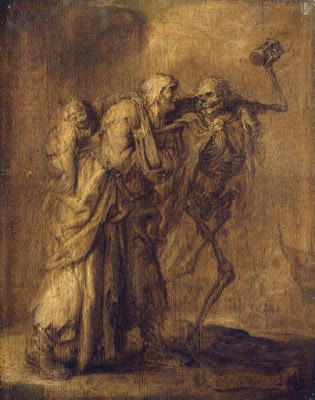
Shopping day today. The meat counter looked deceptively full. It wasn’t. A portion was fresh pasta instead, as before, now without the excuse of a special on it. A portion, when I looked closer, was vegetarian meat substitutes—brands and items the store never carried before.
Yeast reappeared, after long absence, but an unfamiliar brand.
Social distancing was impossible; no one else was doing it, and many objected if you tried. It does appear unfriendly if you hold back until they finish, or refuse to pass. Unpleasant experience.
I also felt that everyone’s mood was darker. Last week, and weeks before, there was a spirit of “we’re all in this together.” Now people everywhere are getting cranky. Probably including me. It’s past having any novelty value, and we are losing hope it will all end well if we just do as we are told by the authorities.
You can almost see the social fibres snapping.
The store seemed a bit busier than last week, but still no lineup and no wait to get in.
Dr. John Campbell, one of my YouTube authorities, reported a study in the New England Journal of Medicine which, he said, showed that hydroxychloroquine unfortunately did not work. But I, and many other listeners, immediately saw problems with the study. It was used without zinc, and in emergency departments on those with severe symptoms. It was almost as though they crafted the study to return negative results.
Dr. Campbell backed down from his definitive statement the next day.
I’d say hydroxychloroquine is still alive. It looks sinister that remdesivir has been approved already, despite only marginal results in an unfinished study, while we hear almost nothing officially about hydroxychloroquine, and what we hear seems engineered to be negative. Hydroxychloraquine is cheap and readily available. Remdesivir is a gigantic profit opportunity for Gilead Pharmaceuticals. It is almost enough to make you doubt the system.
As Milton Friedman pointed out, the problem with government regulations is that, in order to set and enforce regulations, government is obliged to rely on the expertise of those actually in the industry. So what do they do? Ensure the regulations reduce competition and work to their benefit instead of that of the consumer.
There are rumblings of other possible treatments. Campbell and Scott Adams are now both suggesting that Vitamin D deficiency may be an important factor in how badly one is affected by the virus. The statistical correlations look impressive. Again, it is striking that we hear nothing about vitamin D from any government source: there’s no money in it for the pharmaceuticals.
Adams has been saying there is no way we can have enough tests available in the next few months to move to a strategy of test, trace, and isolate—the obvious alternative to lockdown. But yesterday, Trump announced that the US had enough testing capacity now to do so. And the British government has begun the program on the Isle of Wight, with plans to make it universal in a week or two if all works as hoped.
It seems to me we can get things back up and moving with such a strategy, combined with UV light for sterilization in public places, infrared cameras to check for fevers at entrances to public buildings, face masks, checking everyone for vitamin D deficiency, and isolation of seniors and those with other risk factors. Even without effective treatments.
'Od's Blog: Catholic and Clear Grit comments on the passing parade.
Published on May 12, 2020 06:26
May 11, 2020
News of the Apocalypse
Apparently, we have been experiencing a rash of earthquakes.
'Od's Blog: Catholic and Clear Grit comments on the passing parade.
Published on May 11, 2020 16:46
Back to the Garden?
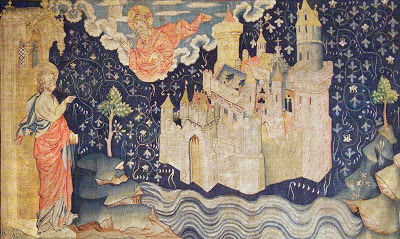 St. John sees the New Jerusalem
St. John sees the New JerusalemMy good friend Darius wants to argue that the goal of creation is to return to the Garden of Eden.
I disagree. I think there is a fundamental conceptual flaw here. The Garden is Eden is simply a state without sin. Being without sin is not the goal. No one is without sin. The goal is to demonstrate virtue.
Heaven is described in the last book of the Bible. It is not a garden. It is a city. It is not a return to nature, but a triumph of culture.
Darius argues that salvation is salvation from sin, and so it implies a return to the time before sin.
“Salvation means being restored to a position before having been needed to be saved.”
This sounds reasonable; but is it true?
Consider this analogy: you are booked on the Titanic. The Titanic hits an iceberg and goes down at sea. You, unlike Leonardo di Caprio, are saved.
Does this salvation mean you are taken back to Belfast, the point at which you embarked? Does it mean you are back in your stateroom on the Titanic, as it was before it hit the iceberg?
No; that would have been less desirable than to be dropped safely off in New York harbour.
Your house is on fire. To save you, is it necessary for the fire department to reconstruct the house to the condition it was in before the fire, and put you back in? Is it even a good idea? Wouldn’t it be better to rebuild on a firmer basis?
Would you reconstruct a bridge that has fallen down, exactly as it was before it fell?
Salvation rarely involves being restored to the position before having been needed to be saved. If it does, this is irrelevant to salvation.
But another analogy is better for speaking of the Fall. It is the classic situation of a hero legend.
An innocent maiden is about to be eaten by a dragon. Call her Eve. A brave knight appears, slays the serpent, and saves the maiden. They marry and live happily ever after.
You might argue that both knight and maiden would have been better off had the dragon never existed. But if it had never existed, they also would never have met. The brave knight would never have been able to prove his virtue, his valour, and his love.
These are the positive virtues the Fall allows us to express; and it allows both us and God to demonstrate our love for one another.
Would the world be better without brave knights, fair maidens, heroism, heroic virtue, legends and stories, and true love? Would the world be better without art?
If the issue was merely avoiding sin, then animals and small children are the ideal. Neither, after all, are capable of sin. And God could have easily left the world in Edenic happiness, simply by not allowing free will. As soon as he allowed free will, it was a statistical certainty that man would eventually sin. And not just a statistical certainty: God is omniscient. He knew man would sin, and could have prevented it in this way.
But do any of us think it is best to remain a child forever? Does anyone believe that a random water buffalo is morally superior to Mother Teresa? Do any of us think God made a mistake?
Arguing that there is free will without sin in heaven, Darius raises a good and interesting point: “This can be proven logically if we agree on the following axiom: when we proceed into the heavenly realm after this time on earth, we can expect to continue to be capable of exercising free will.”
But consider the angels.
Like us, they have free will. However, the angels chose once and forever for or against God, and, having done so, their thoughts and actions are consistent. It is unthinkable for Gabriel to tell lies.
It seems we each face this same angelic choice, confirmed at death. I imagine it is especially meaningful to sin in the divine presence. Adam and Eve sinned when God was not apparent, and felt shame when he reappeared. We each face the divine presence at death.
Why is an earthly life necessary? Why not just have us all born into heaven? Our earthly life must be a triage, separating out those who, given free will, will choose evil, from those who, given free will, will choose good, when in the divine presence and aware unambiguously of the significance of their choice. Without this time of trial, it is impossible to have a heaven in which we are all allowed free will.
'Od's Blog: Catholic and Clear Grit comments on the passing parade.
Published on May 11, 2020 09:14
May 10, 2020
The Argument for God from Computer Science
Published on May 10, 2020 10:40
Canadian Traditions

It is often said that Canada is a nation of immigrants, and in opening our doors wider and wider to both refugees and immigrants, we are honouring the best Canadian tradition.
In the Osborne Collection at the Toronto Public Library, I came across a broadsheet from 1917, outlining a school ceremony to honour the Canadian flag.
The words the children were to say are instructive regarding the attitude towards immigration at that time, the time of Canada’s great immigration wave to populate the Prairies.
First student: From overcrowded European countries people will come thronging into this Dominion. Let it be our duty as coming citizens to see that only the worthy are allowed to enter. Let us like faithful sentinels, ever on the alert, guard our ports of entry.
So much for a simple open door policy. The door was guarded.
Second student: Pray tell us, who may enter in?
Third student: The honest, healthy, industrious immigrant will always find a welcome.
We now ask for specific skills supposed to be good for industry. Then, we asked for honesty and industry. Then, we saw immigrants as people, with intrinsic value, not just cogs in the economic machine.
This seems to me both more ethical and wiser. And it would be easy enough to determine. Simply make immigrants ineligible for any form of public assistance until they had been here for, say, five years, and deport them if they are convicted of a crime.
Fourth student: And when he has entered, we must see to it that he is taught to love our land, to keep her laws, to uphold her traditions and to salute her flag, as we do now.
Here we have really let the Canadian side down. We no longer teach immigrants to love Canada, to keep her laws, and to uphold her traditions. We actually now do the opposite. Our own Prime Minister has publicly denied there are such things as Canadian traditions. There are, of course, but our political elites aggressively reject and scorn them—including any appearance of the old flag these children were saluting. Meantime, our governments promote and fund whatever foreign traditions immigrants bring with them. That’s “multiculturalism.”
Most nations are based on race. There is nothing necessarily wrong with that: Wilson’s celebrated Fourteen Points asserted that nations ought to be. But Canada is not, and never was.
A nation, however, has to be based on something. Those that are not united by race must be united by shared traditions, or they are not united. They just happen to be living in proximity to one another. They will be incapable of any shared enterprise—of anything like peace, order, or good government.
Fifth student: 'Tis the Flag of Freedom we salute. The slave who many years ago crossed the border, the refugee from Poland, the downtrodden and religious outcast from mid-Europe, found Freedom beneath this Flag of ours and knew himself a man.
And this was the essence of Canadian tradition: freedom.
It is also, of course, the essence of the American tradition, and arguably of the British tradition.
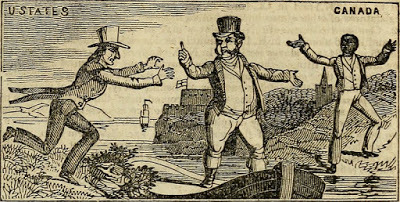
But, as the pledge still remembers, Canada has a special claim here, on the issues of slavery and of religious freedom. When the rest of the British Empire, and the USA, and the New World, and indeed most other countries, still practiced slavery, slavery was banned in Canada, and any slave who made it across the border was free. When the rest of the British Empire, and the USA, and most other countries, had no freedom of conscience, there was religious freedom in Canada. Only here could both Catholics and all varieties of Protestants vote, own land, and run for office, and even aspire to be Prime Minister.
This is what Canada was about at its founding. This is our legitimate heritage. It was this set of shared values.
This is what we have forgotten, and seem determined to lose.
'Od's Blog: Catholic and Clear Grit comments on the passing parade.
Published on May 10, 2020 08:26
May 9, 2020
The Woodstock Virus
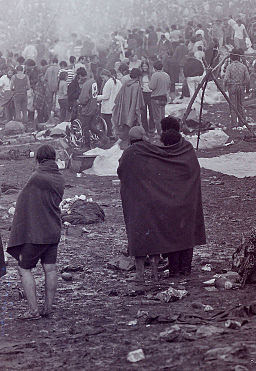 Three Days of Peace & Ccontagion
Three Days of Peace & CcontagionA friend sends a link to an article that has been circulating on the internet: Woodstock happened in the middle of a pandemic similar to the present one.
Indeed, who even remembers?
I didn’t. Until I did more research and came across a reference to “Hong Kong flu.” That rang a bell. But only a muffled one.
The subtext, no doubt, is that we have wildly overreacted to the coronavirus. Why the apocalyptic shutdown? Have our leaders screwed up badly?
Not a lot of social distancing, after all, at Woodstock.
Are the two epidemics comparable? On the surface, yes. The article cites 100,000 dead in the US, one million worldwide, from the Hong Kong flu. Coronavirus has so far killed 79,000 in the US, and 277,000 worldwide. And it is worth remembering that the population of America, and the world, was a lot lower then.
Yet this is deceptive. To begin with, we need to factor in the lockdown. If I recall correctly, the initial projections had COVID-19 killing 250,000 in the US by now, had we not locked down.
Granted, that projection might have been wrong. To double check, compare the death rate so far for Sweden, which has had no formal lockdown, with Denmark and Norway, neighbouring and socially similar countries that have had lockdowns. The death rate in Sweden is currently 3.5 times that in Denmark, 8 times that in Norway. Transferring those multiples to the US suggests that, without the lockdown, we should have seen from 276,500 to 632,000 American deaths by now.
Now consider that the Hong Kong flu total is for a pandemic that lasted over two years; the second year, as with the Spanish flu, was more lethal. Coronavirus has been with us for only about six months. So for fair comparison, we must multiply again by four: a projected death toll, in the US alone, of 1,106,000 to 2,528,000.
That makes COVID-19 an order of magnitude worse than the Hong Kong flu.
Another factor to consider, in how little we remember the Hong Kong flu, is that it, as with the coronavirus, was far more dangerous to those over 65. To those under 65, it was just the flu.
Those still alive today would have been quite young in 1969.
As to the idea that we have become too soft, too unused to various afflictions, and because of this have overreacted, this does not wash when you consider that the US was not the only nation to go into lockdown. Most other nations are doing it; China did it first. It is not plausible that all of them are now softer and less familiar with discomfort than the US was in 1969. While American youth were celebrating at Woodstock, the Chinese were, in some places, eating each other.
We may indeed now urgently need to re-open. But I don’t think this 1969 parallel amounts to any argument that the authorities have been wrong to shut things down.
The good news we should take from the comparison is that society seems to have healed itself after the Hong Kong flu with no permanent scars, barely a memory. The same seems true of the Spanish flu; there was no economic fallout easily traceable to it. The same seems true of AIDS, so recently seemingly poised to depopulate the world.
This too shall pass.
'Od's Blog: Catholic and Clear Grit comments on the passing parade.
Published on May 09, 2020 06:51



